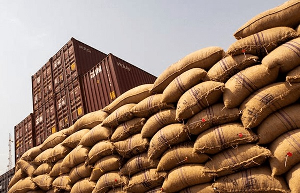The National Petroleum Authority has announced plans to secure the services of a consultant to conduct integrity assessment of all underground petroleum products storage tanks including pipelines of retail outlets across the country by next year.
The Authority had also issued directives for depot operators to ensure that their operations and measuring systems were compliant with the industry requirements.
It further asked them to automate their process, which would be integrated into the NPA’s Enterprise Relational Database Management System (ERDMS).
Those measures formed part of efforts to improve transportation and safety of petroleum products in the country.
Mr Hassan Tampuli, the Chief Executive Officer (CEO) of the NPA, made the announcement at a stakeholders’ meeting of petroleum downstream sector in Accra.
He said the Authority was also reviewing the Oil Loss Control Manual and copies had been made available for all stakeholders for use and expected that the manual would improve and ensure accurate reporting receipts and delivery of petroleum products.
The stakeholders meeting afforded the opportunity to petroleum downstream players to dialogue, share and exchange ideas on ensuring effective and efficient management of the sector to promote economic growth.
It also created a platform for the NPA and other stakeholders to disseminate industry information, trends and opportunities to ensure the continuous growth of the downstream sector in accordance with international best practices.
The event attracted captains of the industry and representatives of key partners including the Customs Division of the Ghana Revenue Authority, Bulk Oil Storage and Transportation Company Limited, Chamber of Oil Distributors Board, Association of Oil Marketing Companies, Ghana Cylinder Manufacturing Company and Tema Oil Refinery.
The CEO of the NPA said it had outlined plans to commence the installation of automatic tank gauging systems at all retail outlets next year and be integrated into the Authority’s Enterprise Relational Database Management System.
It also intended to commence the installation of electronic ceiling and tracking devices on bulk road vehicles (BRVs) without tracking devices and the BRVs would be integrated into the ERDMS.
These measures, Mr Tampuli said would provide an effective control and monitoring of petroleum products distribution activities in the downstream sector.
The Authority had also put up a proposal for the development of new bulk distribution companies (BDCs) licensing requirements into two categories so that financially distressed BDCs remained in business and honour various financial obligations to the state.
The CEO of the NPA observed that those measures were created as a result of Mansco Gas Filling Station explosion that occurred at the Atomic Junction in Accra last year.
He noted that the Energy Ministry instituted a number of actions and interventions to ensure safe delivery of petroleum products at all retail gas and fuel outlets across the country.
Mr Tampuli mentioned the implementation of the National Liquefied Petroleum Gas (LPG) Policy while Cabinet directed the NPA to roll out the National Cylinder Recirculation Model (CRM) to ensure that at least 50 per cent of Ghanaians have access to safe and environmentally friendly LPG for domestic, commercial and industrial use by the year 2030.
He said it had held stakeholder consultations with the public, organized groups and institutions and expressed optimism that the full implementation of the CRM policy would ensure safety in the use of LPG.
Mr Tampuli said the Authority would continue to collaborate with other key players in the petroleum downstream sector to enhance the capacity of persons involved in the handling of petroleum products including tanker drivers and their mates adhered to safety standards.
“The Authority has strengthened its capacity to intensify monitoring and inspection mechanisms to ensure safety standards at the various fuel filling stations to forestall any unforeseen accidents,” he assured.
He said it had carried out risk assessment of all re-filling plants across the regions, and classified them as high, medium or low risk stations depending on the outcome of the assessment.
The Authority, he said, has put in place several measures to ensure safety in handling petroleum products, noting that some of them had been introduced while others were yet to be rolled out for safety standards.
He said the review of the price deregulation policy in the operations of the petroleum service providers was crucial and outlined some areas to be reviewed including competition, cost of operation, service delivery, pricing methodology and business model.
Mr Tampuli said the NPA was collaborating with the Driver and Vehicle Licensing Authority and Road Safety Limited to train and certify drivers, which would lead to additional issuance of licences of drivers for the pouring of petroleum products in accordance with the Road Traffic Regulations LI 2180 of 2012.
Business News of Saturday, 27 October 2018
Source: ghananewsagency.org













